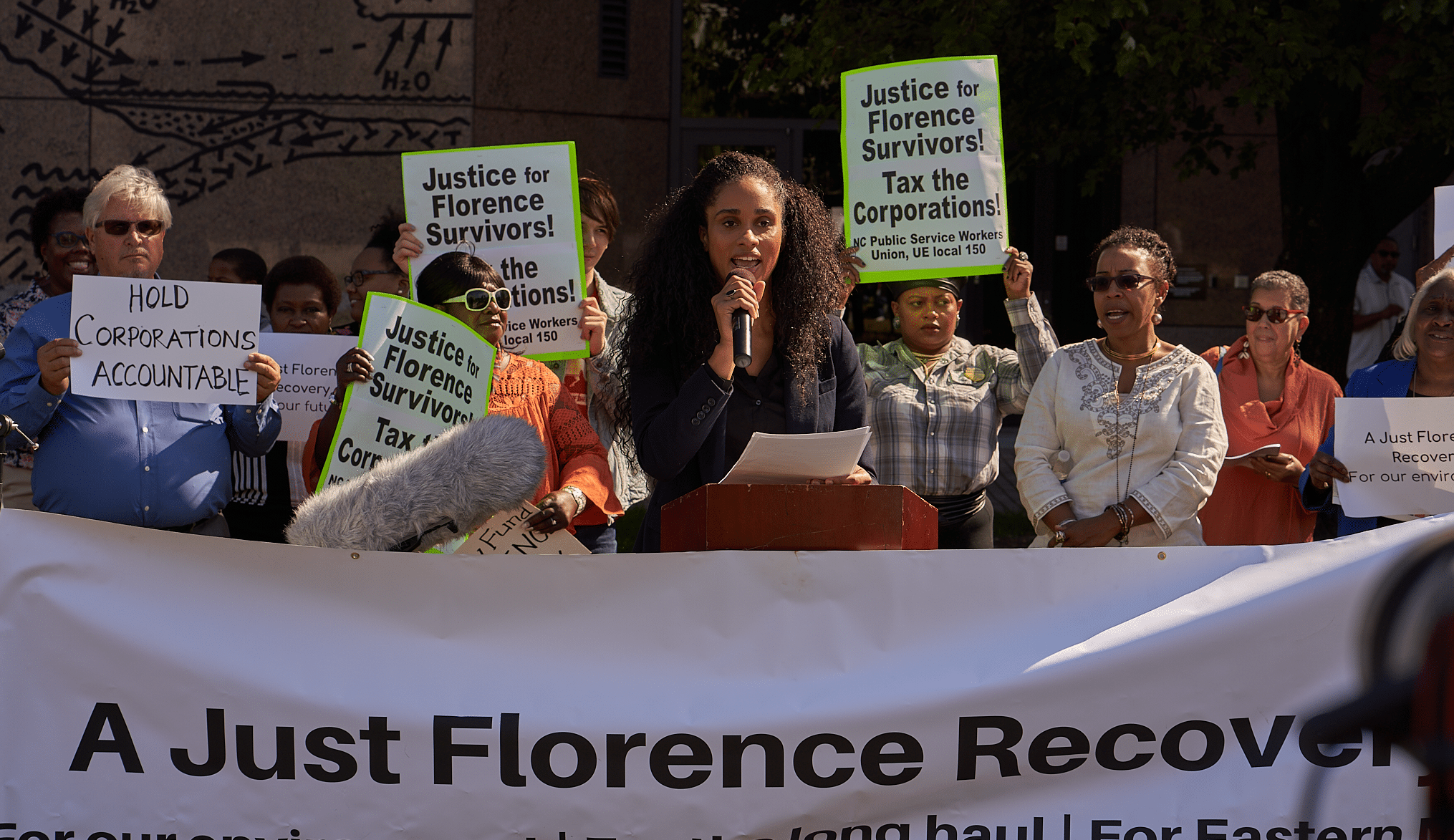
What North Carolina’s Unfair Political Maps Have To Do With Hurricanes
Originally posted in Talking Points Memo.
In the early fall of 2018, North Carolina braced itself for the worst hurricane in the history of the state. As Hurricane Florence made landfall, the storm ravaged our most vulnerable communities, leaving residents struggling to pick up the remaining pieces of their lives.
A collective of community leaders and activist groups mobilized, organizing 80,000 pounds of supplies to be distributed to every impacted county, scheduling airdrops and truck deliveries, and dispatching volunteers. I worked alongside them, helping to coordinate water rescues and evacuating people into temporary shelters. Once the storm finally passed, I helped renovate homes destroyed by water damage.
This moment of crisis may have seemed like an unlikely time to educate people about the 2020 U.S. Census and voting rights.
But the two can’t be disentangled.
In the wake of natural disasters, disaster funding is distributed based on the population. The census is also used in drawing redistricting maps for every state. In other words, as we told the Florence survivors we met on the ground, to fight for the census is to fight for every community’s political voice.
The census has historically undercounted vulnerable and economically disadvantaged communities. For the 2020 census, this problem has only grown. Filling this gap requires an investment in community engagement and a commitment to working alongside vulnerable communities to ensure every person is counted.
The prospective success of the upcoming census looks grim. The 2020 census is scheduled to be offered mainly online, even though 60 million Americans lack access to the Internet.
Those Americans without internet come from the same vulnerable communities who have struggled with underfunding and under-representation in the past: Black and POC communities, rural and vulnerable urban communities. If we do not count these communities, they will be robbed of the helpful resources they are entitled to.
Time and time again, new ways to steal political representation away from these communities are invented by those who want to keep power away from people of color, from the poor and from those who they want to silence. The Republican Party’s success at gerrymandering states like North Carolina has emboldened their efforts to tip the census, as we saw in the recently released files of deceased GOP redistricting mastermind Thomas Hofeller.
As we now know, Hofeller and the dark minds of the GOP not only worked together to craft some of the most egregious partisan gerrymanders in our nation’s history, but to try to get a citizenship question added to the census.
As the ideologically-Republican Supreme Court weighs a citizenship question which could drive millions away from participating in the census, other changes will rob additional citizens of their voice as we count those who live in our country.
These communities have been forged together by crisis after crisis, fighting along the way for social justice, voting rights, climate justice, and civil rights. They have invaluable expertise, knowledge and understanding of true organizing which brings about change and survival in their communities. It’s time we learn from them.
Now is the time to join alongside these communities and amplify our voices to take back our democracy. If we want to ensure that every person is counted in the next census, we must take community engagement seriously.
Hurricane Florence struck just weeks before the pivotal 2018 midterm elections. In the midst of the relief efforts, we launched a two-pronged effort: to amplify the voices of the communities in their search for state disaster aid and to take back our political power in the midterms.
We stood together and organized supply drives. We combined get-out-the-vote and census education events in impacted communities, including the infamous Congressional District-9. Local residents, their leaders, and non-profit groups worked together fighting for survival, quality of life, and for our political voices to be heard. When the 833 absentee ballots were stolen in an elaborate Republican ballot fraud scheme in NC-9, we organized town halls and fought back. This time the people won.
Post-Florence, this same collective worked tirelessly to organize survivor summits and press conferences. The funds we raised are now being re-granted directly to the impacted communities.
My home state of North Carolina has displayed deep, united community engagement in the face of voter disenfranchisement, environmental injustices, and partisan and racial gerrymandering. By ensuring communities are treated as partners, not used as catalyst to deepen the power of organizations, we are rising together.
The same must be done for the census. Taking back our democracy demands a voice for everyone. An equitable census is pivotal to winning this ongoing battle.
Related Posts
Ways to Support Our Work

Read Latest News
Stay informed and inspired. Read our latest press releases to see how we’re making a difference for the planet.

See Our Impact
See the real wins your support made possible. Read about the campaign wins we’ve fought for and won together.

Donate Today
Help power change. It takes support from environmental champions like you to build a more healthy and just world.